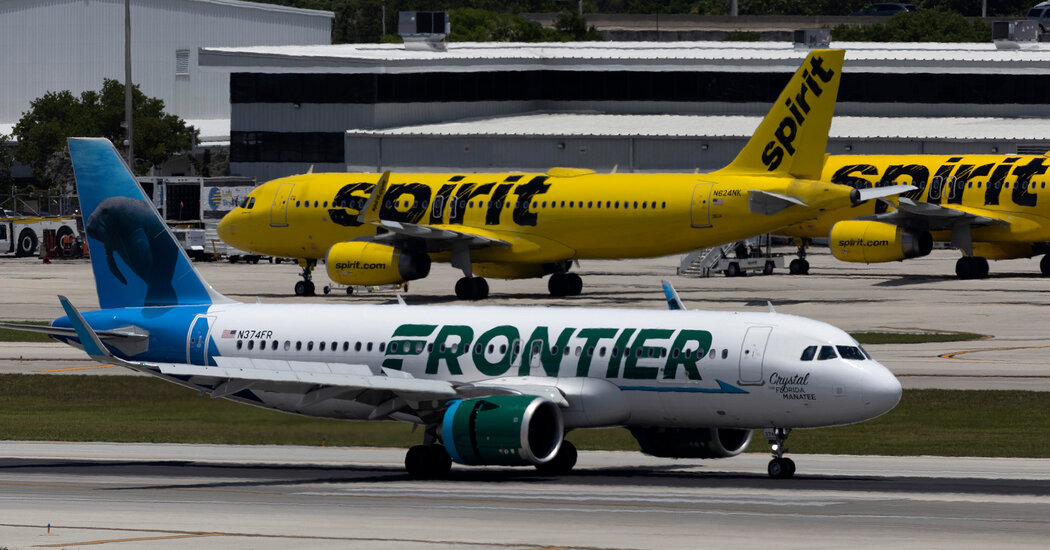Spirit Airlines has postponed shareholder vote on its proposed merger with Frontier Airlines amid an escalating bidding war, with JetBlue Airways trying to close the deal.
The vote, originally scheduled for Friday, was moved to June 30. In a statement on Wednesday, Spirit said the additional time would allow its board of directors to “continue discussions with Spirit shareholders, Frontier and JetBlue Airways,” which has launched a competitive bid for the airline.
Early last week, a prominent shareholder advisory firm, Institutional Shareholder Services, released a report in which Spirit’s shareholders rejected the Frontier deal “as a signal to the board of directors” to negotiate with JetBlue, which Spirit’s directors have repeatedly said. turned down. ISS said it was reasonable to assume the Frontier deal would more easily gain regulatory approval, but disagreed with Spirit’s claim that a merger with JetBlue had virtually no chance due to antitrust issues.
Frontier responded by allaying one of ISS’s concerns, pledging to pay Spirit a $250 million winding-up fee if regulators prevent an agreed-upon merger. JetBlue had initially offered a $200 million payment under the same circumstances. Then another influential shareholder advisory firm, Glass Lewis, weighed in and advised Spirit’s shareholders to approve the Frontier deal.
This week, JetBlue improved its offer, raising the cancellation fee to $350 million and offering to pay a portion up front to shareholders if they approve the offer.
JetBlue’s chief executive, Robin Hayes, said in a statement that the postponement of the vote was “a necessary first step towards real negotiations”. He added: “Spirit shareholders are clearly urging Spirit’s board to work constructively with us.”
Industry analysts generally agree that Spirit’s proposed merger with Frontier, announced jointly in February, would make for a simpler combination. Both airlines operate similar low-cost business models, but with different geographic strengths. The Spirit acquisition also makes sense for JetBlue, which has struggled to grow as much as it would like, although combining the two airlines would have its challenges.
Spirit has said it believes regulators would reject the JetBlue deal because JetBlue is already facing a lawsuit to avoid a partnership between the company and American Airlines in New York and Boston. However, the Justice Department’s main concern there seems to be protecting the independence of JetBlue, which has a reputation for lowering prices in competitive markets.
Both ISS and Glass Lewis said it was reasonable to assume the JetBlue deal would be more difficult to approve, but each said it had a chance.
“It seems safer to assume that both deals deal with significant regulatory uncertainty than to try to hinder Frontier’s potential advantage over JetBlue from a regulatory perspective,” ISS said in its report.
Both deals would result in the creation of the fifth largest airline in the United States, one that would be more competitive with the country’s four dominant airlines.

